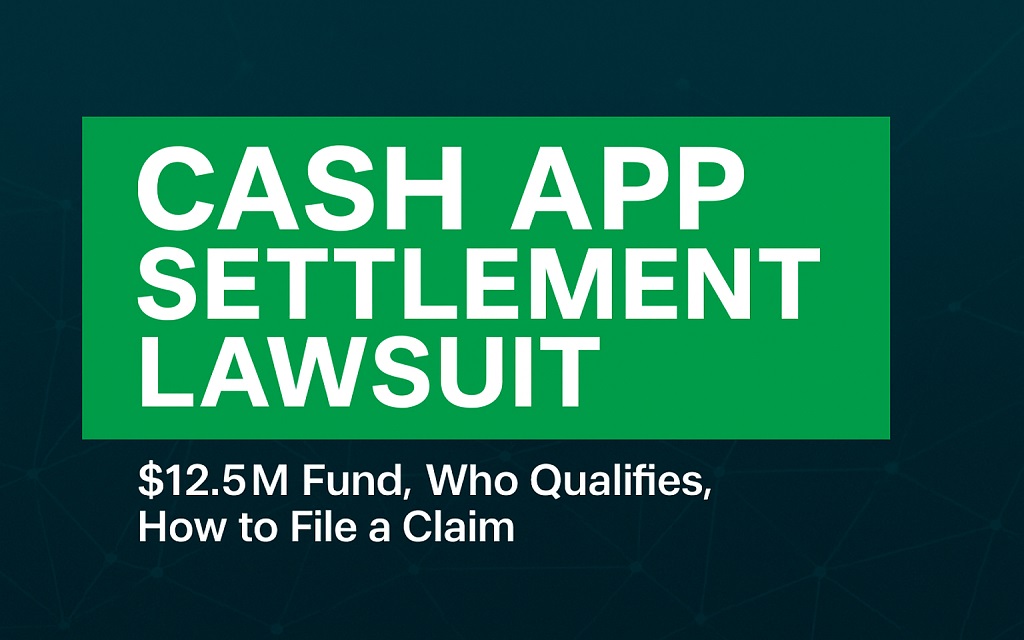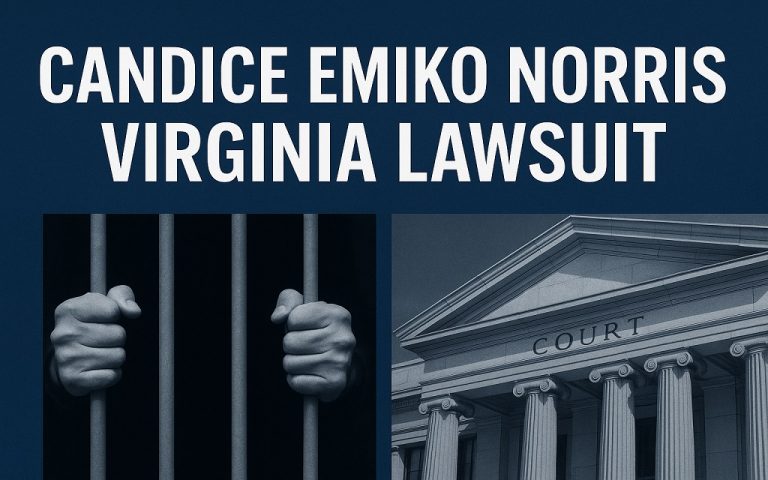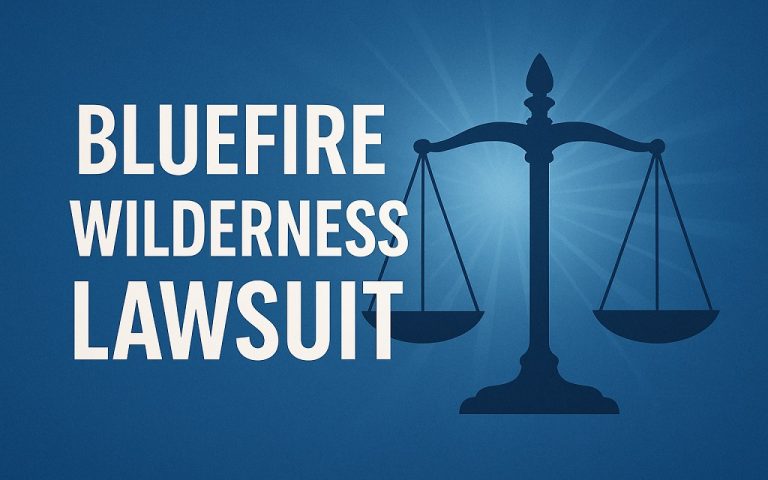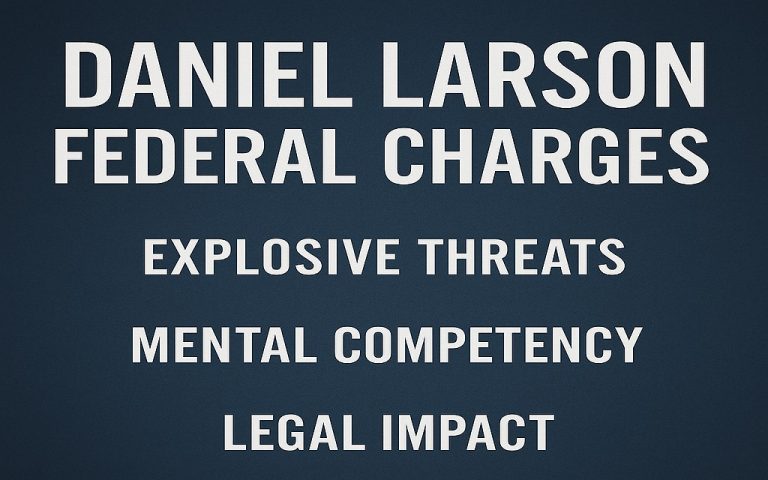If you live in Washington and received a referral text from Cash App, you may be part of a $12.5 million Cash App Settlement Lawsuit. The lawsuit claims that Cash App sent “Invite Friends” texts without obtaining proper user consent, thereby violating Washington’s consumer protection laws. While Cash App denies wrongdoing, it agreed to settle the case.
If approved, the Cash App Settlement Lawsuit could pay eligible users up to $147. Don’t ignore this. If you got one of those texts, you could get paid. Discover who qualifies, how to file a claim, and the applicable deadlines in the Cash App Settlement Lawsuit, now pending in the courts, in this article.
What Does the Cash App Settlement Cover in Washington?

Cash App agreed to pay $12.5 million to resolve a class action lawsuit in Washington state. The suit accused Block, Inc., the company behind Cash App, of sending unsolicited referral texts. These “Invite Friends” messages allegedly went to Washington residents without proper consent.
The Cash App Settlement lawsuit claimed the messages violated two laws: the Washington Commercial Electronic Mail Act (CEMA) and the Washington Consumer Protection Act (CPA). Both statutes ban unauthorized promotional texts. The complaint alleged that Cash App employed a default, pre-written referral message that users could send with a single tap.
One such text said:
“Hey! I’ve been using Cash App to send and receive money. Try it using my code and you’ll get $5. Use my code and you’ll get $5!”
Cash App denied wrongdoing. Still, it chose to settle. The $12.5 million creates a non-reversionary fund, which means leftover money won’t return to the company. Instead, it will go to class members or approved charities.
The settlement affects only Washington residents. If someone received a referral text from Cash App while living in Washington, they may qualify. This includes texts sent from November 14, 2019, through a date set by the court.
The case is called Bottoms v. Block Inc., filed in the Western District of Washington. Judge Marsha J. Pechman granted preliminary approval. Final approval is expected on December 2, 2025.
Who Qualifies as a Class Member?
A person qualifies if:
- They were a Washington resident, and
- They received a Cash App referral text, and
- The text came between Nov. 14, 2019, and a date defined by the court, and
- They did not give explicit, prior consent to receive that message.
This class includes both current and former residents. Even if a person has since moved, they may still qualify if they lived in Washington at the time they got the text.
The text must be part of the “Invite Friends” feature in the app. It does not matter who sent the message. The sender could be a friend, family member, or someone unknown. If the content originated from the pre-written message provided by Cash App, it falls under the settlement.
The court stated that this default message made it difficult for users to edit or modify the text. This created a situation where Cash App itself may have “caused” the message under Washington law. That triggered the potential CEMA and CPA violations.
Notably, the court excluded individuals who had given valid prior consent. If someone clearly agreed to receive the message, they will not qualify.
People unsure about their status can check the official settlement site once it’s live. The site will let users enter their information and confirm eligibility.
Must Read: Understanding Credit Card Rights: What to Know About Payment and Penalties
How Do You File a Claim?
Filing a claim is simple. There are two options:
- Online, through the official settlement website, or
- By mail, using a paper claim form.
The claim form asks for basic details:
- Name
- Mailing address
- Phone number
- A statement confirming you lived in Washington
- A statement confirming you received a Cash App referral text
Claimants do not need to show the actual message. No screenshot or saved text is required. The settlement administrator will compare the information with records supplied by Block, Inc.
The deadline to file a claim is 90 days after preliminary approval. Since the court approved the deal on July 31, 2025, the claim deadline is expected around October 29, 2025. The exact date will be published on the settlement site.
Once a person files, the administrator will review the claim. If approved, they will receive a payment by check or digital transfer. The amount will depend on the number of valid claims and the final settlement costs.
The administrator is Eisner Advisory Group LLC. They will handle all forms, notices, and payments.
What Deadlines Apply Right Now?
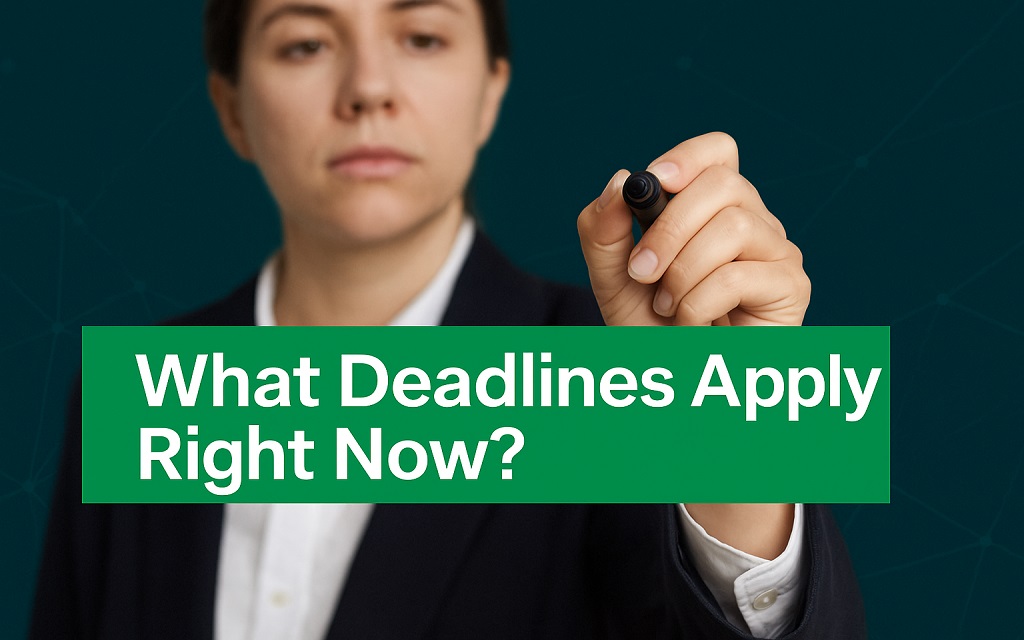
Key deadlines follow the court’s preliminary approval order:
- Claim deadline: Likely October 29, 2025 (90 days from July 31)
- Opt-out deadline: Same as claim deadline
- Objection deadline: Same as above
- Final approval hearing: December 2, 2025
To qualify for a payout, a person must file by the deadline. Late claims will be rejected. That rule applies even if a person qualifies under the settlement terms.
Anyone who wants to opt out must also act by the same deadline. Opting out means the person gives up payment but keeps the right to sue Cash App separately.
People who want to object must submit a written objection. The court will review all objections during the final approval hearing.
All of these dates may shift if the court changes the schedule. The official website will carry the most up-to-date deadlines. Class members should check it regularly.
Eisner Advisory Group will also send direct notice to the Washington numbers. This notice will include the deadlines, instructions, and a link to the claim form.
How Much Money Can a Person Expect?
The total settlement fund is $12.5 million. This includes everything—payments to class members, lawyers’ fees, costs, and administration.
After fees and expenses, the court expects about $9 million to go to claimants. The final amount will vary depending on the number of valid claims filed.
The motion for approval used a 3% claims rate to estimate payments. If 3% of eligible people submit valid claims, the estimated payout per person is $147. Suppose more people claim, the payout drops. If fewer people claim, each check will be larger.
ClassAction.org estimates a range of $88 to $147 per person. This depends on:
- How many people file claims
- Court-approved fees and service awards
- Administrative costs
The final number will not be known until after the claims window closes and the final approval hearing happens.
People should not expect a guaranteed amount. This is a pro rata settlement. That means the money will be split equally among all valid claims after costs.
The court will publish a final report with actual figures once the case closes.
What Proof Does a Person Need?
To file a valid claim, a person needs to confirm two things:
- They received a Cash App referral text
- They lived in Washington state when they got it
They don’t need to provide physical proof. No screenshot, saved message, or phone bill is required. This is different from many other class action claims. The court recognized that few people save years-old text messages.
Instead, the claim form works on sworn statements. A person affirms:
- “Yes, I received a referral message.”
- “Yes, I lived in Washington at that time.”
The settlement administrator, Eisner Advisory Group, will cross-check submissions against data from Block, Inc. That data includes referral message logs, timestamps, and sending phone numbers.
If a claim looks suspicious, the administrator can ask for more details. But the default rule favors simplicity. This allows faster processing and higher participation.
People who have additional proof, such as screenshots, can submit it, but it is not required. The court approved the notice and claim form, assuming no mandatory evidence from class members.
This helps meet the legal goal of a fair, accessible claims process.
What If a Person Wants to Opt Out or Object?

A class member can opt out of the settlement. This means they choose not to take part. They give up their payout but keep the right to sue Block, Inc. separately.
To opt out, a person must send a written request to the administrator by the deadline. The request must:
- State the person’s full name and address
- Include an explicit request to be excluded
- Be signed and dated
Once excluded, the person can no longer file a claim under this settlement. They won’t get any money, but they also won’t be bound by the court’s final approval.
Another option is to object. This means the person stays in the settlement but wants to raise a concern. Common objections include:
- Lawyers’ fees are too high
- Payout estimates are too low
- The claims process is unfair
To object, a person must write a formal objection letter. This letter goes to both the court and the administrator. It must include:
- The objector’s name and address
- A statement that the person is a class member
- The reasons for the objection
- A notice if the person wants to speak at the final hearing
The court will review objections at the final approval hearing on December 2, 2025. Judge Pechman can accept or reject any objections.
What Do CEMA and the CPA Require?
This Cash App Settlement lawsuit centers on two Washington state laws:
- CEMA – the Commercial Electronic Mail Act
- CPA – the Consumer Protection Act
- Under CEMA (RCW 19.190), it is illegal to send unsolicited commercial text messages to residents of Washington. The law treats text messages similarly to emails for enforcement purposes. It applies to businesses and individuals alike.
Under CPA (RCW 19.86), businesses cannot use unfair or deceptive practices. A mass texting system that sends messages without consent may qualify as deceptive. Mainly, if the sender uses misleading language or hides the business relationship.
Cash App’s referral system created a pre-written message. It pushed users to send this to friends with little effort. The lawsuit claimed that:
- The messages lacked real consent from recipients
- Cash App set up the content and distribution
- This violated both CEMA and the CPA
Cash App denied all claims. It said the users—not the company—sent the messages. It also argued that it complied with the law.
The court did not decide who was right. But it approved the $12.5 million deal as a fair compromise.
Why Did the Court Grant Preliminary Approval?
Judge Marsha J. Pechman approved the settlement on July 31, 2025. This is referred to as “preliminary approval.” It means the court saw enough to let the process move forward.
The court reviewed:
- The strength of the legal claims
- The risks of trial
- The size of the fund ($12.5 million)
- The terms for lawyers’ fees (up to 30%)
- The fairness of notice and claim procedures
The judge found that the deal:
- Was within the range of reasonableness
- Used a common fund with pro-rata payouts
- Did not revert leftover funds to Block
- Applied clear class definitions
- Included strong outreach methods (texts, website, publication)
The court emphasized the benefit of resolving the dispute without trial. Trials can take years. This settlement gives eligible users relief faster and without legal fees.
The court also approved the appointment of Eisner Advisory Group to manage the claim process.
What Happens at Final Approval?
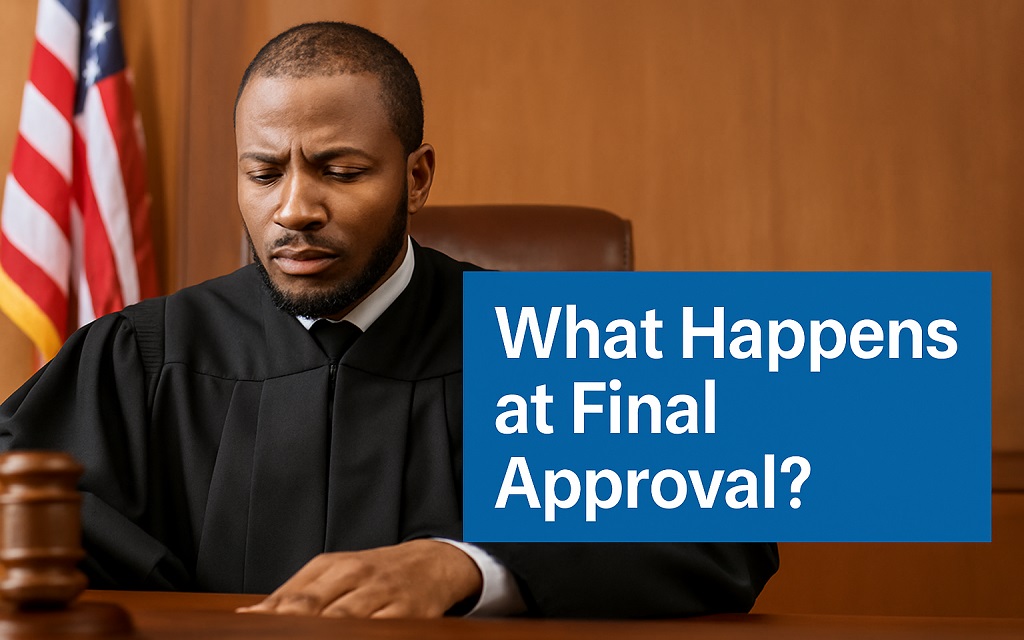
The final approval hearing is scheduled for December 2, 2025, in the U.S. District Court for the Western District of Washington.
At that hearing, the court will:
- Review any objections
- Confirm opt-outs
- Check that the notice plan reached enough people
- Decide on lawyers’ fees and service awards
- Approve or reject the settlement
If the judge grants final approval:
- Valid claims will get paid
- Cash App will be released from further legal claims on this issue in Washington
- The court will enter judgment
If the court rejects the deal:
- No money will be paid
- The lawsuit may go back to trial
- The parties could renegotiate a new deal
The final approval is the last step before checks go out. It also binds all class members who did not opt out.
Anyone can attend the hearing. Class members are not required to attend. But those who filed objections and want to speak should plan to appear or submit a request.
How Does Consent Affect Eligibility?
Consent is the most critical factor in this Cash App Settlement lawsuit. A person does not qualify for a payment if they clearly gave prior consent to receive Cash App’s referral texts.
The court defines valid consent as:
- Clear – not implied or assumed
- Prior – before the message was sent
- Voluntary – not forced or hidden in the long term
If someone manually opted in, or if they checked a box agreeing to get promotional messages, that may disqualify them.
The Cash App Settlement lawsuit argued that most people never agreed to receive referral texts. Instead, friends used Cash App’s built-in message. Cash App users could press a button, and the app would send the message by text. The default text said:
“Try it using my code and you’ll get $5!”
The plaintiffs claimed this system blurred the lines between a user-initiated message and company-driven marketing. Washington law (CEMA) requires more than that.
Cash App said it gave users complete control and did not send messages itself. The company denied any unlawful conduct. Still, it agreed to settle.
The settlement excludes anyone who:
- Knowingly permitted to get the message, or
- Agreed to Cash App’s marketing terms with full awareness
If a person is unsure, they can still file a claim. The administrator will review all forms and decide based on available data.
Must Read: Data Breach Lawsuit: How to Claim Compensation and Protect Your Rights
What Does the Notice Say and Where to Find It?
The court required a strong notice plan. Class members must get clear information about:
- The settlement terms
- Who qualifies
- How to file a claim
- Key deadlines
- Opt-out and objection rights
- Final approval hearing
The administrator will use three types of notice:
Direct text message
- Sent to phone numbers with a Washington area code
- Goes only to numbers in Block, Inc.’s data
- Includes a link to the claim website
Published notice
- Online ads on legal websites
- Includes summary info and a claim link
Settlement website
- Contains full details and court documents
- Has the online claim form
- List contact info for questions
The site will also offer:
- A downloadable PDF claim form
- FAQs in plain language
- Privacy and data use terms
The administrator, Eisner Advisory Group LLC, must launch this site after receiving preliminary approval. The site URL will be listed in all messages and court notices.
People can file online or print the form and mail it. Claims must be submitted or postmarked by the deadline (likely October 29, 2025).
Who Runs the Settlement and How to Reach the Admin?
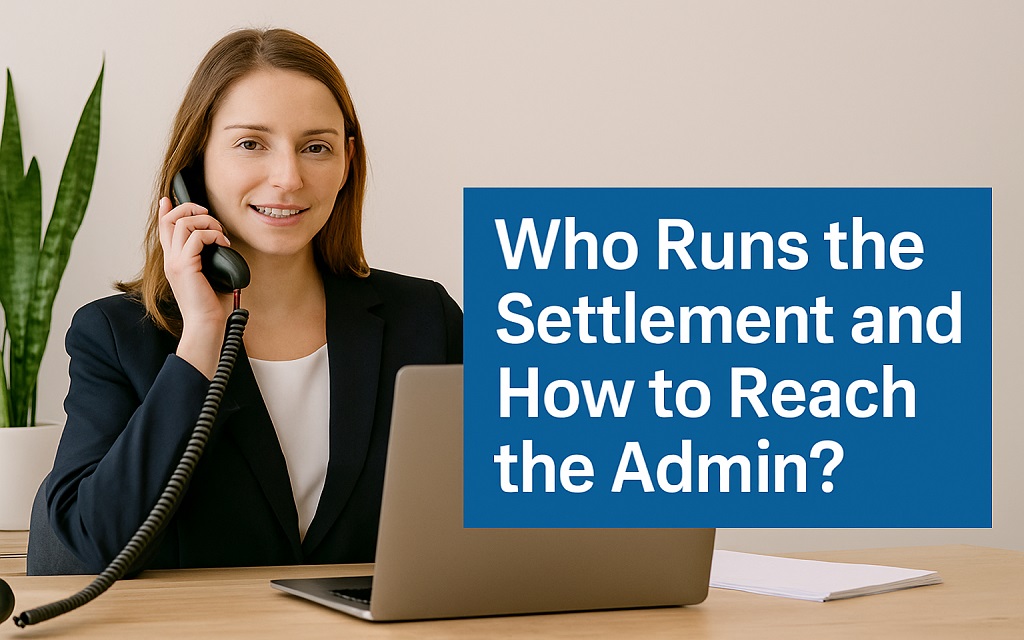
The court appointed Eisner Advisory Group LLC as the Settlement Administrator. They are a neutral third party. They do not work for Cash App or the lawyers.
Their job is to:
- Launch and manage the official claim website
- Send direct notice messages
- Process and review all claims
- Reject invalid or duplicate entries
- Handle opt-outs and objections
- Issue payments after final approval
Class members can contact Eisner by:
- Email (address will be listed on the website)
- Phone (a toll-free number will be active once the site goes live)
- Mail (to the official settlement address)
They will also manage all recordkeeping. This includes lists of valid claimants, denied claims, opt-outs, and objections.
Once final approval happens, they will issue payments either by:
- Check
- Direct deposit
- Digital wallet (like PayPal or Venmo)
Claimants can choose the method on the form. Anyone with questions about status or eligibility should contact the administrator—not the court or Cash App.
How Does This Cash App Settlement Lawsuit Compare to Robinhood in 2024?
The plaintiff lawyers cited Moore v. Robinhood Financial LLC as a related case. That lawsuit also involved text messages sent through an app’s referral system.
In Moore, users of the Robinhood app sent pre-composed messages that offered free stocks for sign-ups. Like in the Cash App case, the core question was:
Did the company “send” the messages, or did users?
The court in Moore ruled that Robinhood could be held liable under similar theories. The message content, platform control, and user experience all mattered.
That ruling helped the Cash App plaintiffs. It showed that courts view app-based texts with suspicion—especially when users barely interact with the message before it sends.
The lawyers for Kimberly Bottoms, the lead plaintiff in the Cash App case, referenced Moore to show that their claims could survive trial. This made settlement a safer option for Block, Inc.
The same legal theory may apply in future lawsuits involving app-based promotions. Other tech companies may now review their own referral tools.
What Risks or Limits Can Reduce a Payout?
Several factors may reduce final payments to class members:
High claim volume
- The fund is fixed at $12.5 million
- More valid claims = lower payout per person
- If 10% of eligible people file, each may get less than $50
Attorneys’ fees
- Lawyers can request up to 30% of the fund ($3.75 million)
- The court must approve the exact fee
Service awards
- Lead plaintiffs may get bonus payments for helping with the case
- These awards come from the fund
Admin costs
- Website, mailing, claim review, and payment handling costs reduce what’s left
Invalid or duplicate claims
- Some may be rejected after review
- False entries slow down the process
Appeals or delays
- If someone appeals the approval order, payments may pause
- The court must resolve all objections first
People who want the largest payout should:
- File a complete, truthful claim on time
- Avoid submitting duplicates
- Monitor the settlement website for updates
What Steps to Take If a Person Got No Direct Notice?
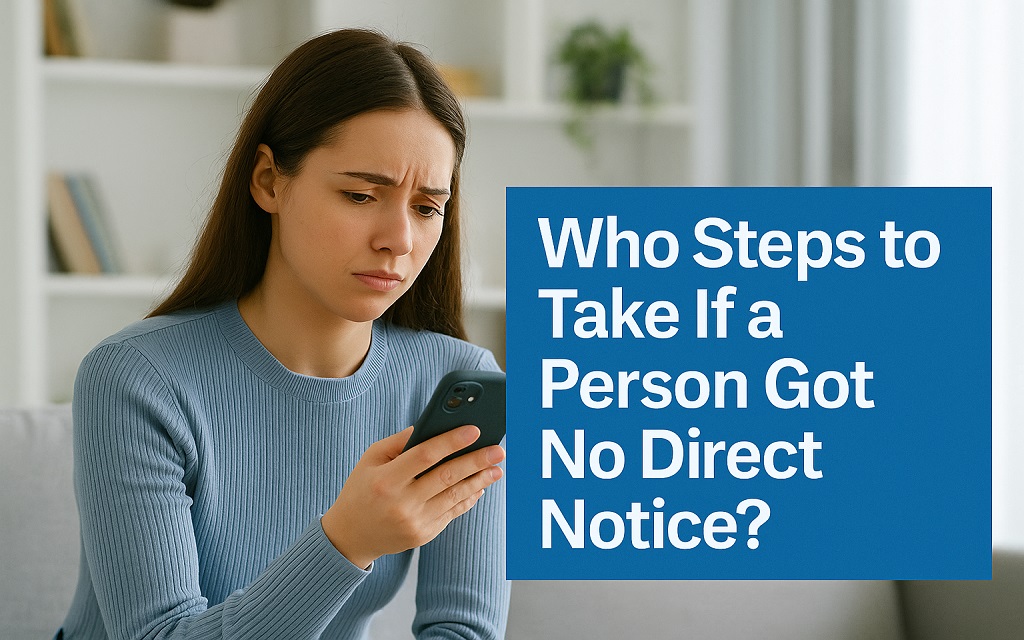
Some eligible class members may not receive a direct text notice. This can happen if:
- Their phone number has changed since 2019
- Their Washington residency was not recorded
- Their number is not in Cash App’s referral message logs
Even without a direct notice, a person can still file a claim. The settlement allows self-certification. That means a person can say under oath that they:
- Lived in Washington at the time
- Got a referral message from Cash App
The official settlement website includes complete instructions for people who never got a text or letter. As long as the person meets the class definition, they can submit a claim.
It’s essential to file before the deadline. If someone waits too long, they lose the chance to participate—even if they qualify.
People should also check their email and spam folders. The administrator may send digital notices beyond texts. If a person receives any settlement communication, they should follow the links and save the documents.
What Rights Remain After Final Approval?
Once the court grants final approval, the settlement becomes legally binding. Class members who do not opt out waive their right to sue Block, Inc. for similar issues in the future.
This release includes all claims related to:
- Cash App referral texts
- Washington’s CEMA and CPA statutes
- Past marketing conducted by the “Invite Friends” tool
The release only applies to class members. People outside the class (e.g., from other states) still have the right to sue, if allowed under their local laws.
Class members who want to preserve individual legal rights must opt out before the deadline. After final approval:
- Opt-outs keep their full rights
- Participants cannot sue again over the same texts
- All approved claims will be paid based on remaining funds
This process aligns with Rule 23 of the Federal Rules of Civil Procedure. It ensures that the class action binds all parties fairly and equally.
Claimants can still contact the administrator after final approval to update their contact information or resolve a payment issue. But they cannot withdraw or change the claim.
Key Documents and How to Cite Them?
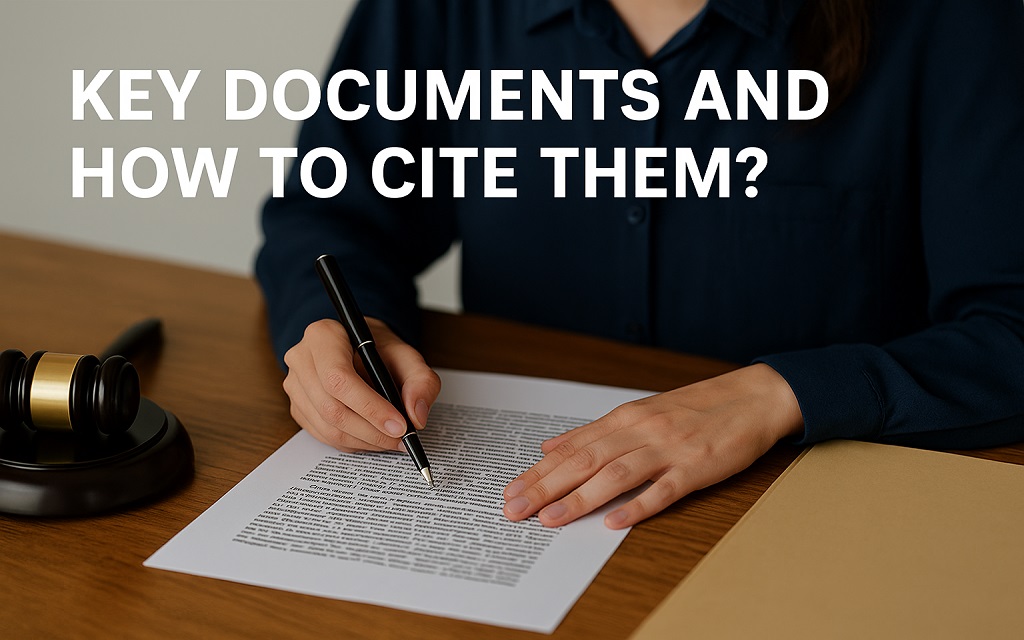
This settlement includes multiple legal documents that outline its terms. Each plays a role in defining who qualifies and what steps are required.
Core documents:
ClassAction.org Report
July 31, 2025, update covering key facts, fund size, and payout estimate
→ ClassAction.org Cash App Settlement NewsPreliminary Approval Order
Issued by Judge Marsha J. Pechman on July 31, 2025
→ Approves class definition, deadlines, and notice planMotion for Preliminary Approval
Filed by plaintiffs’ lawyers; includes detailed payout math
→ Projects average payout at ~$147 per valid claimClass Action Complaint
Filed in 2023 by Kimberly Bottoms against Block Inc.
→ Details legal claims under RCW 19.190 and 19.86
All of these will be linked on the official settlement site. Users can download them as PDF files.
Lawyers on the case include:
- Terrell Marshall Law Group PLLC
- Berger Montague PC
The case number is 2:23-cv-01969 in the Western District of Washington.
Frequently Asked Questions
How do I get the Cash App settlement lawsuit?
If you were a resident of Washington and received a referral SMS between 2019 and 2025, you can submit a claim using the official settlement website.
Is the Cash App settlement real?
Yes, on July 31, 2025, a federal judge in Washington granted preliminary approval for the $12.5 million Cash App settlement.
Can users of the Cash App get up to $2,500 during the $15 million settlement?
No, the current Cash App settlement offers estimated payouts of $88 to $147 per person—not $2,500.
What is the 2025 Cash App settlement amount of $2,570?
The $2,570 Cash App payment has not been confirmed; this could be false information or a scam tied to the $12.5 million class action lawsuit.
Conclusion
To put it briefly, Washington residents have a unique opportunity to receive compensation for unwanted recommendation messages through the $12.5 million Cash App settlement—without needing to provide complicated documentation or retain legal counsel. You may be eligible for reimbursement if, between November 2019 and the settlement date, Cash App sent you a text message stating, “Invite Friends.”
This Cash App Settlement lawsuit illustrates the importance of companies adhering to state laws, such as CEMA and the Consumer Protection Act, when utilizing referral programs. It also proves that class actions can bring real results to regular users who speak up.
But time is limited. The claim deadline is expected around October 29, 2025. Don’t wait. If you think you qualify, check your eligibility, submit a claim online, and secure your share of the fund.
Every valid claim lowers the payout per person—so the earlier you act, the better your chances of a higher return. Have questions? Visit the official settlement site or contact Eisner Advisory Group, the court-appointed administrator.
Eligible? File your claim now. It only takes a few minutes—and it could be worth over $100.
Disclaimer: This article provides a general overview of the Cash App Settlement lawsuit, based on publicly available information, and is intended for informational purposes only. It is not legal advice.
Musarat Bano is a content writer for JudicialOcean.com who covers lawsuits, legal news, and general legal topics. Her work focuses on research-based, informational content developed from publicly available sources and is intended to support public awareness. She does not provide legal advice or professional legal services.

